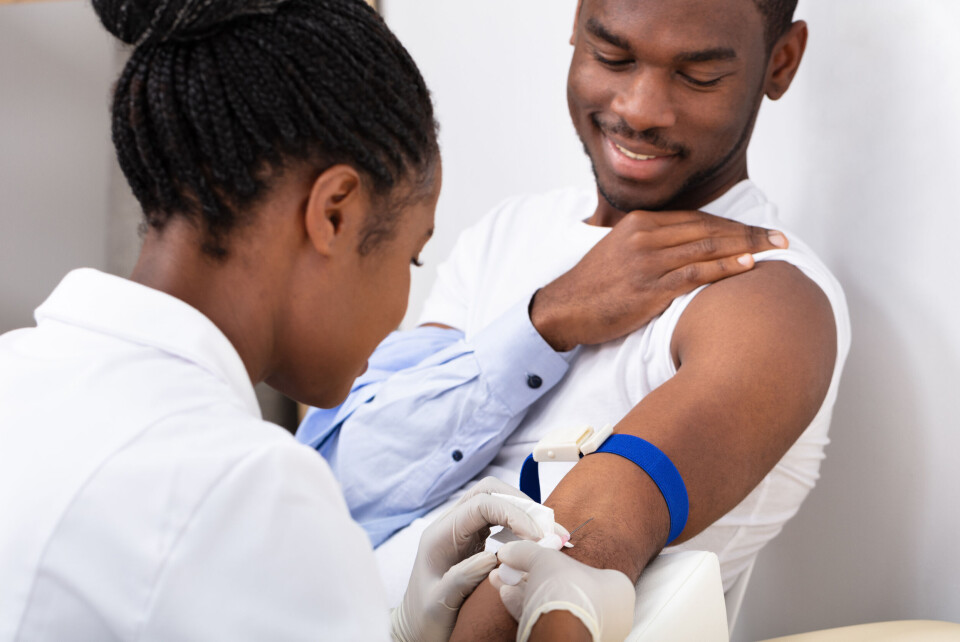-
More than 5,000 French communes use AI to identify poor rubbish sorting
Badly-sorted rubbish can cost millions so communes are turning to high-tech solutions
-
Tax on well-off retirees under consideration for 2026 budget
‘Nothing is off the table’ when it comes to finding €40 billion in savings says Labour Minister
-
Nice airport records passenger boom as tourists flock to city
Airport figures exceeded the pre-Covid record last year, with US visitors significant contributors
France to lift blood donation ban for gay men who have had recent sex
The change comes into effect from March 16, ending the final restrictions on gay men giving blood for the first time since 1983

France will end a ban tomorrow (March 16) that rules that gay men cannot give blood if they have had sexual relations in the past four months.
The update to the law was voted through last summer, and published in the country’s official journal on January 13 this year.
French Health Minister Olivier Véran welcomed the change, saying, “we are ending an inequality that was no longer justified”.
The new ruling has been a long time in the making. Homosexual men were banned from giving blood in France in 1983 due to the AIDS epidemic.
This ban was lifted in 2016, but on the condition that they had not had sex in the past 12 months. In 2019, this was shortened to four months.
Tomorrow, the question about sexual relations with a man will be entirely removed from the blood donation criteria questionaire.
In the UK, men who have had sex with the same man for three months or more can give blood. Anyone who has had sex with a new partner or multiple partners in the past three months, regardless of their gender, must wait three months before donating.
New law ‘result of health authorities vigilance’
Florian Poupon, head of the LGBT+ association Homogène based in Le Mans (Sarthe), said that “giving blood is an act of citizenship”.
“A lot of LGBT people were frustrated at not being able to do it before,” he told France 3.
Professor Jérôme Salomon, the French general director for health, said the change has been made possible thanks to the “extreme vigilance of health authorities”, with practices improving over the recent years.
Sébastien Maury of the association Aides said that models show there is a slight risk to removing the question, but that “the real results will not be known until early 2023”.
Violette Cordaro, head of the LGBT+ centre Nosig in Nantes, said that the law banning donations from men who had had sexual relations in the past four months made no sense.
“It allows homosexuals who do not take Prep - a preventive treatment that protects against HIV - to give blood. While those who do take it, who therefore carry the least risk, cannot give blood,” she said.
“In any case, in the LGBT community many people are taking Prep today, as there is still no vaccine [against HIV].”
Who can donate blood in France?
Around 10,000 blood donations are required each day to treat patients in France.
You must be over 18 years old and under 70 to give blood, but there are a number of other criteria too related to weight, medical history, tattoos and piercing, and sex life.
The easiest way to know if you are eligible is to take this short survey on the Etablissement Français du Sang (EFS) website (in French). As soon as you choose an option that makes you ineligible to give blood in France, an information box will pop up to tell you.
One factor that disqualifies someone from giving blood is those who spent over one year in total in the UK between January 1, 1980, and December 31, 1996. This is due to the outbreak of mad cow disease (Creutzfeldt-Jakob Disease) in the UK at the time.
EFS states that if you fall into this category, there are other ways to support the blood drive. For example, you can donate your blood for non-therapeutic use (for teaching and medical research). To do so, you should ask at a donation centre or find out more by phoning 0800 109 900.
Read more:Giving blood: When will France end ban over UK’s 1980s BSE outbreak?Read more: Can British people banned from giving blood in France be organ donors?
How do I donate?
If you wish to make an appointment in advance you can do so by booking online here.
You can also find your nearest donation centre by searching on the EFS website here.
What documents do I need?
If it is your first donation, you should bring an ID (national identity card, passport or residence permit). Otherwise, your donor card is sufficient. You do not need to bring your carnet de santé.
And in true French style, all donors will be offered a light meal after their donation. This usually consists of biscuits, bread and charcuterie, etc as well as drinks and water.
Related articles
French blood service encourages donations through MissingType campaign
























